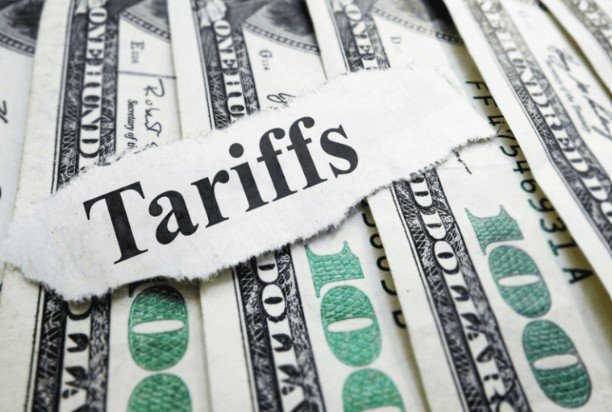Wave of New Tariffs Escalates Global Trade Tensions
As global power equations shift, India’s foreign policy must look beyond trade penalties to the larger threat of Chinese dominance in Asia.
China, Oct 13 : The message from Beijing could not be clearer. The Chinese Communist Party’s intent to forcibly unify Taiwan with the Mainland is no longer whispered it is being declared with open confidence. The world’s largest naval force, led by the most powerful Communist regime, appears to be preparing for what many fear is inevitable: an invasion of Taiwan.
If that happens, Taiwan’s hard-won freedom and democracy could soon be extinguished. Regular Chinese air and naval incursions already serve as stark reminders of this looming danger. Against this backdrop, the outcomes of the Russia-Ukraine war hold deep implications not just for Europe, but for India’s future and the global balance of power.
Whether Russia or Ukraine emerges as the victor, one clear winner is already visible: China.
While Russia is weakened militarily and economically, and Ukraine lies devastated, China has quietly strengthened its geopolitical hand providing indirect support to Moscow while expanding its strategic influence across Asia.
This is where India’s position becomes crucial. The high tariffs imposed on Indian exports by the US for continuing to buy Russian oil have been seen domestically as punitive. But this narrow view misses a critical point. The true threat lies not in tariffs, but in the growing possibility of Chinese aggression in the Taiwan Strait a development that could severely impact India’s maritime trade routes with East Asia, especially Japan and South Korea.
Should China seize Taiwan, the Taiwan Strait could effectively become a Chinese-controlled zone, and Indian exports may be subjected to arbitrary tolls or restrictions. In this sense, President Trump’s assertive policies in the Indo-Pacific may actually serve as a warning for India to strengthen its own strategic posture and not rely on Western powers to safeguard its interests.
If the world abandons Ukraine today, it risks legitimizing a dangerous new order where small democracies are crushed by powerful autocracies. For India, that would mean a resurgent China shaping Asia and the Indo-Pacific in its own authoritarian image.
India’s diplomatic dilemma is complicated by its historic friendship with Russia, a relationship that dates back to the Cold War. Russia has long been a key supplier of defense hardware to India, even as New Delhi has diversified its arms imports to include the US and France. But with China emerging as an existential threat, India must now balance its ties carefully maintaining strategic cooperation with Western democracies while ensuring that its Russian friendship does not translate into silence on Ukraine.
The assumption that the Ukraine war is a “European problem” could prove dangerously shortsighted. The lesson for India is clear: China’s rise is not a distant concern it’s an immediate geopolitical challenge.
To its credit, India has worked to counterbalance Beijing through the QUAD alliance a partnership with the US, Japan, and Australia aimed at ensuring stability in the Indo-Pacific. Yet, unlike NATO, QUAD is not a military alliance; it lacks the mutual defense guarantee that defines Western security pacts.
Among QUAD members, India remains the most vulnerable, sharing a 3,500 km border with China and facing the brunt of Beijing’s aggression. While the US, Japan, and Australia have formal defense treaties and joint military capabilities, India largely stands alone in its direct confrontation with China.
Recently, both Japan and Australia have held major live-fire exercises with the US a sign of growing concern about Chinese expansionism. Meanwhile, Chinese officials in New Delhi have not hesitated to criticize the US and even lecture India on QUAD policies a breach of diplomatic etiquette that went unanswered by Indian authorities.
The larger lesson for India is unmistakable. The “punitive tariffs” imposed by the West are secondary to the strategic realignment now taking place. The true challenge lies in recognizing that China’s ambitions from Taiwan to the Indo-Pacific directly threaten India’s security, economy, and future.
It was President Trump, after all, who first renamed the US Pacific Command as the Indo-Pacific Command, signaling a strategic recognition of India’s centrality in the region. History may yet vindicate that foresight but only if India acts decisively to secure its place in the shifting world order.




